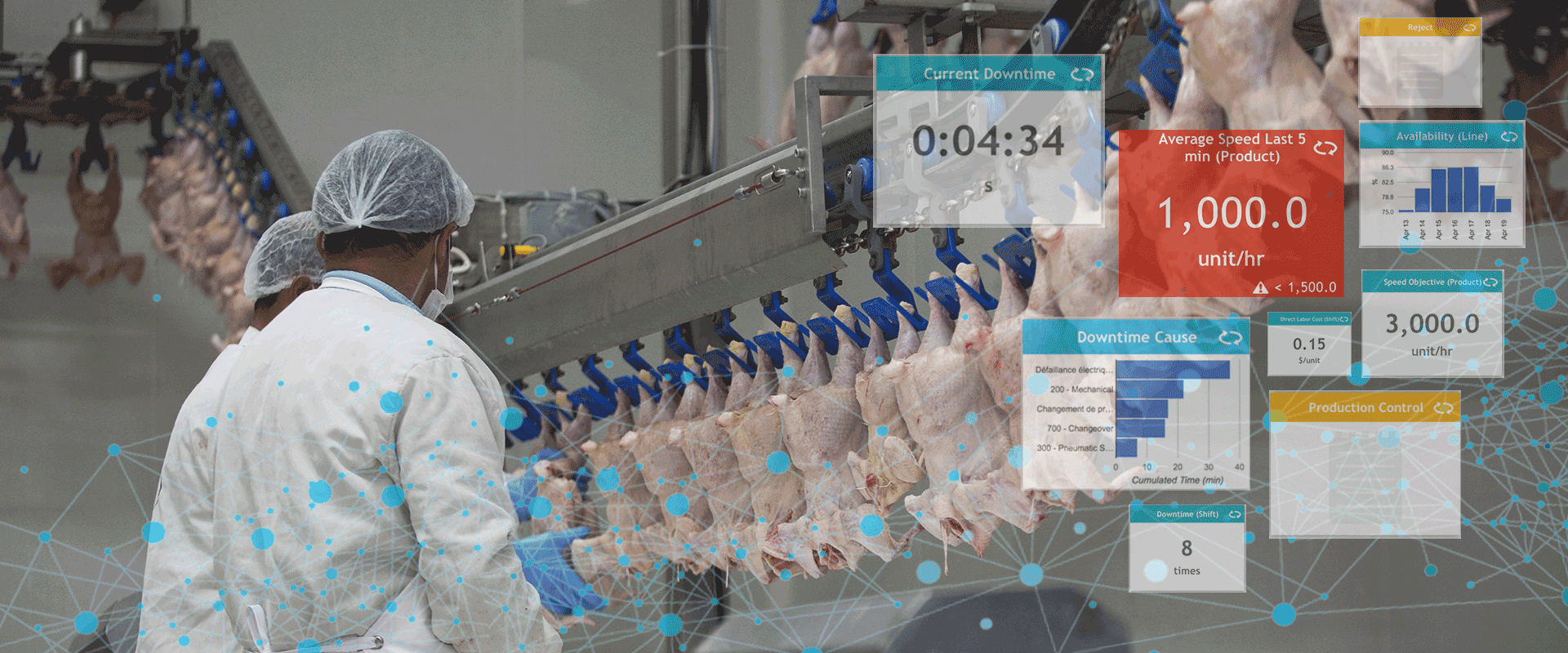When looking at smart factory monitoring and IoT solutions for your food and beverage factory, consider factors that will be the most suitable to your factory's needs, set-up, and conditions. No matter what, you want to spend more time on what matters: making better solutions. In the article, "Machine Monitoring and Analytics as a Path to Smart Manufacturing," Julie Fraser writes about industry insights and approaches that will make a difference.
Here are 3 factors to consider when choosing a monitoring solution
1. Scope
If your factory has a well-established Enterprise Resource Planning (ERP) system in place, by adding a more focused machine monitoring system or Manufacturing Execution System (MES), you'll have a set-up that can be coordinated throughout your entire factory.
But, if it's a considerable challenge to coordinate applications throughout your factory, implementing an ERP which includes MES and machine monitoring will offer reach and range of monitoring.

Example: Overall Equipment Effectiveness is a standard for measuring overall efficiency of your equipment and a metric for identifying key problems and potential improvements that could be made. Track in real-time.
2. Smart & IoT
If the path to smart manufacturing and IoT is on your mind, consider whether you want a traditional on-premises solution or whether a cloud-based or SaaS solution such as machine metrics or propulsion would provide you the learning and IoT foundation you need to feel confident.
Smart manufacturing and IoT are not one-size-fits-all solutions. If you are considering these tools and methods, there are a variety of monitoring solutions to fit your needs and to move forward with confidence. Solutions can take a more traditional on-site form, be cloud-based, or SaaS based (e.g. Machine metrics or propulsion.)
3. Report vs. Predict
Some of the most powerful insights gained from machine monitoring comes from predictive analytics—data is drawn from backward-looking reporting and system insights. The ability to predict system events is key to continuous improvement.















